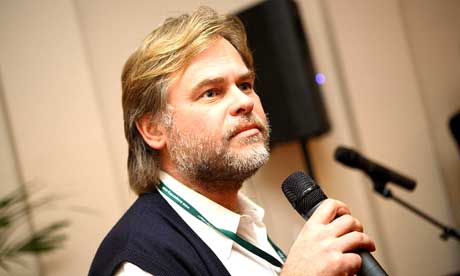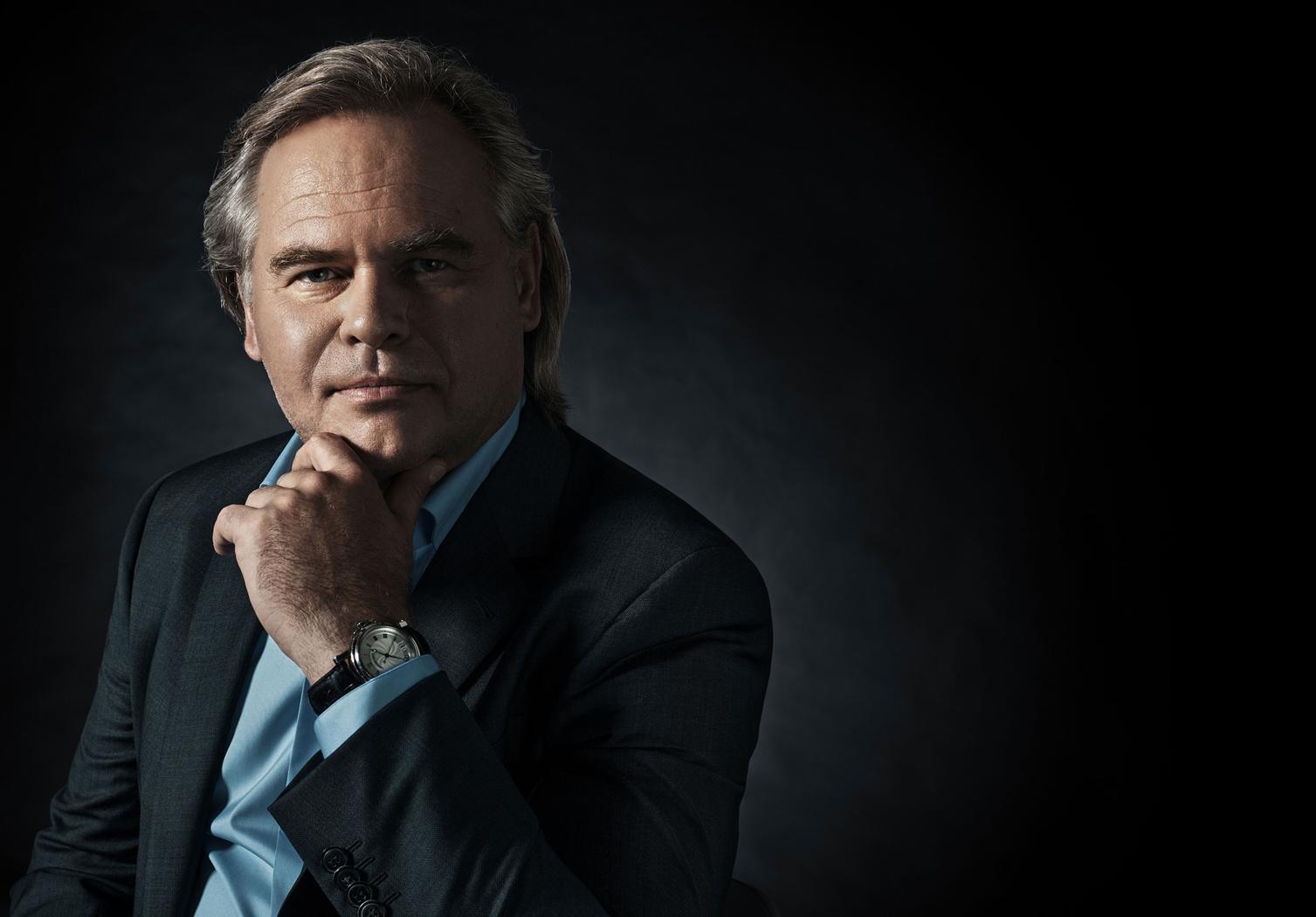
Yevgeny (Eugene) Valentinovich Kaspersky is the person responsible for a cyber revolution that started back in the 19900s. And it happened accidently. Kaspersky, a brilliant mathematician mind, noticed that antivirus software can be profitable, and tried to make one of the first antivirus software in the cyber world.
It all started in 1989, when his personal computer was under the attack of the popular Cascade virus. Yevgeny used his knowledge in mathematics and cryptography to explore the virus, and develop a tool to eliminate the virus. Ever since, the name Kaspersky is associated with antivirus software as the brilliant mathematician succeed in building globally powerful antivirus software keeping our operating systems safe and secure.
Some believe that Kaspersky, a KGB-trained cryptologist is the most trustworthy source on cybersecurity threats. Over the years, Kaspersky and his Lab have been responsible for the discovery of some of the worst viruses in the cyber espionage world.
For example, in 2010, a Kaspersky researcher discovered Stuxnet, a US-Israeli worm that become the first openly acknowledged cyber weapon in the world. The worm wrecked more than 1000 Iranian centrifuges.
In May 2015, Kaspersky exposed another computer weapon, which his Lab dubbed “Flame”. It was another US-Israeli operation that was aimed at Iran.
There have been other discoveries that make Kaspersky leader in uncovering cyber espionage.
While Kaspersky has been successful in discovering and uncovering cyber espionage, one flaw on his resume is that many consider him a KGB or now FSB agent. The mathematician has ties with the KGB since his childhood, when he was accepted to a five year program at the Institute of Cryptography, telecommunication and computer science. He enrolled at 16, and the Institute was backed by the KGB.

After graduating in 1987, Kaspersky became an intelligence officer for the Soviet Army.
Years after, he is still being linked with Russian spies. In 2015, Kaspersky took it to the media to answer those allegations. The main critique is that Kaspersky is excluding Russia from reports regarding cyber espionage. In a Bloomberg article, the author stated that when Kaspersky is not traveling, he is spending the nights with a group of about 10 people in a sauna that frequently includes Russian intelligence officials.
Kaspersky answered that the article is inaccurate and has only one purpose, to exploit paranoia. Eugene’s answer was simple:
- I must have said this a million times, but we do not care who's behind the cyber-campaigns we expose. There is cyber-evil and we fight it. If a customer comes and shows us a problem we investigate it. And once we take the genie out of the bottle, there's no way we can put it back.
Kaspersky also added that it is hard for a company with Russian roots to be successful in Europe and the United States. By default, nobody trusts them. His way of doing things? Be 100% transparent and honest, and while it may take years to explain who they are, in the end, the truth will come out.
As mentioned, Kaspersky became interested in virus and antivirus software in 1989, when a computer virus infected his computer. The Cascade virus made characters on a PC screen tumble to the bottom in the same way as Tetris blocks. Kaspersky saved a copy of the virus on a floppy disk, and studied the virus, how the code works and everything else.
Few weeks later, he encountered a second virus, and he evaluated as well. Then a third virus came, and Kaspersky became addicted. His friends from the time recall that for Eugene, it was an addiction and his interest grew with each and every new discovery.

Once a new virus appeared, Kaspersky spent more than 20 hours in front of a computer trying to pick it apart.
In the early 90s, Kaspersky was working for the Soviet Army, a position he got after he graduated from a KGB-supported Institute. Sadly, getting out of the army was easier said than done. The only way to get out of the Soviet Army in the early 90s was to go to jail, get sick, or prove to be incompetent. A former professor, who had a company selling everything (PCs included), somehow managed to get a discharge for Eugene and hire him. Natalya, who soon became Kaspersky’s wife, also joined the company.
In 1997, Kaspersky, his wife and De Mont de Rique went into the antivirus industry and formed a new company. Their software was revolutionary, way ahead of the time. The software that Kaspersky used allowed users to store malware into an isolated sandbox. Eugene and Natalya divorced in 1998, but they stayed within the company.
The key to success was Kaspersky devotion and dedication. While a typical researcher and analyst could process up to 100 pieces of malware and malicious software per day, Kaspersky could and would process 300.
Today, Kaspersky Lab is one of the top four antivirus software companies in the world, employing more than 200 virus researchers and thousands of employees in more than 40 countries in the world.
The Kaspersky antivirus works automatically. Once the user installs the software, the antivirus scans every application, email, file, data on your computer and accumulates data. The software looks for signs of malicious activity, and if it finds one, it deletes it automatically.
Once the software finds a suspicious program or a message, the antivirus sends an encrypted sample to the company for further evaluation. The software checks the code of the malicious software against 300 million software objects on the whitelist and 94 million malicious objects on the blacklist. If the code is not found on any of the list, it is further analyzed by Kaspersky’s researchers. In most cases, the computer finds the problem itself. Only when the system is stumped, a researcher steps in and characterizes the code by function.
For his work in the antivirus industry, Eugene Kaspersky has received a number of awards. Some of the most worthy and valuable ones include the Russian Federation National Award in Science and Technology, handed to him by President Dmitry Medvedev. Here are some of his awards.
- Top 100 Global Thinker (2012) by Foreign Policy Magazine
- Technology Hero of the Year (2012) by V3
- World’s most powerful security Exec (2012) by SYS-CON Media
- CEO of the Year (2010) by SC Magazine Europe
- Lifetime Achievement Award by Virus Bulletin in 2010
- Top 25 Innovators of the Year (2012) by CRN

There have been many documentaries about The Beatles. After all, they are widely regarded as one of the most successful bands of all time. The Beatles created music that is s...
We’ve read so much about Hitler. And we’ve heard so much about him. But have we heard it from the source? This National Geographic documentary provides a new insight t...
When you think of solo artists, you rarely think of John Clayton Mayer. But he is definitely one of the most influential artists of his generation. The “Someday I’ll Fly�...
We live in a digital era, where we communicate using our phones, Facebook, instant messaging tools, and much more. We seem to forget to communicate with each other, and conne...